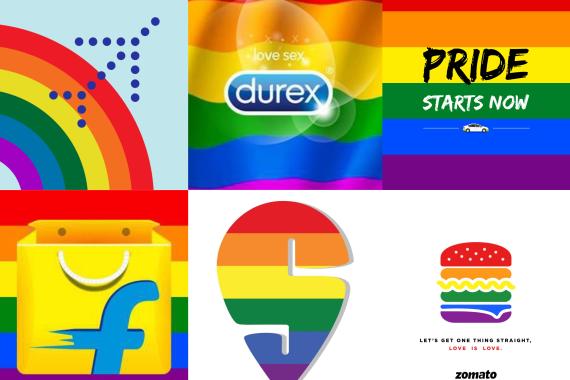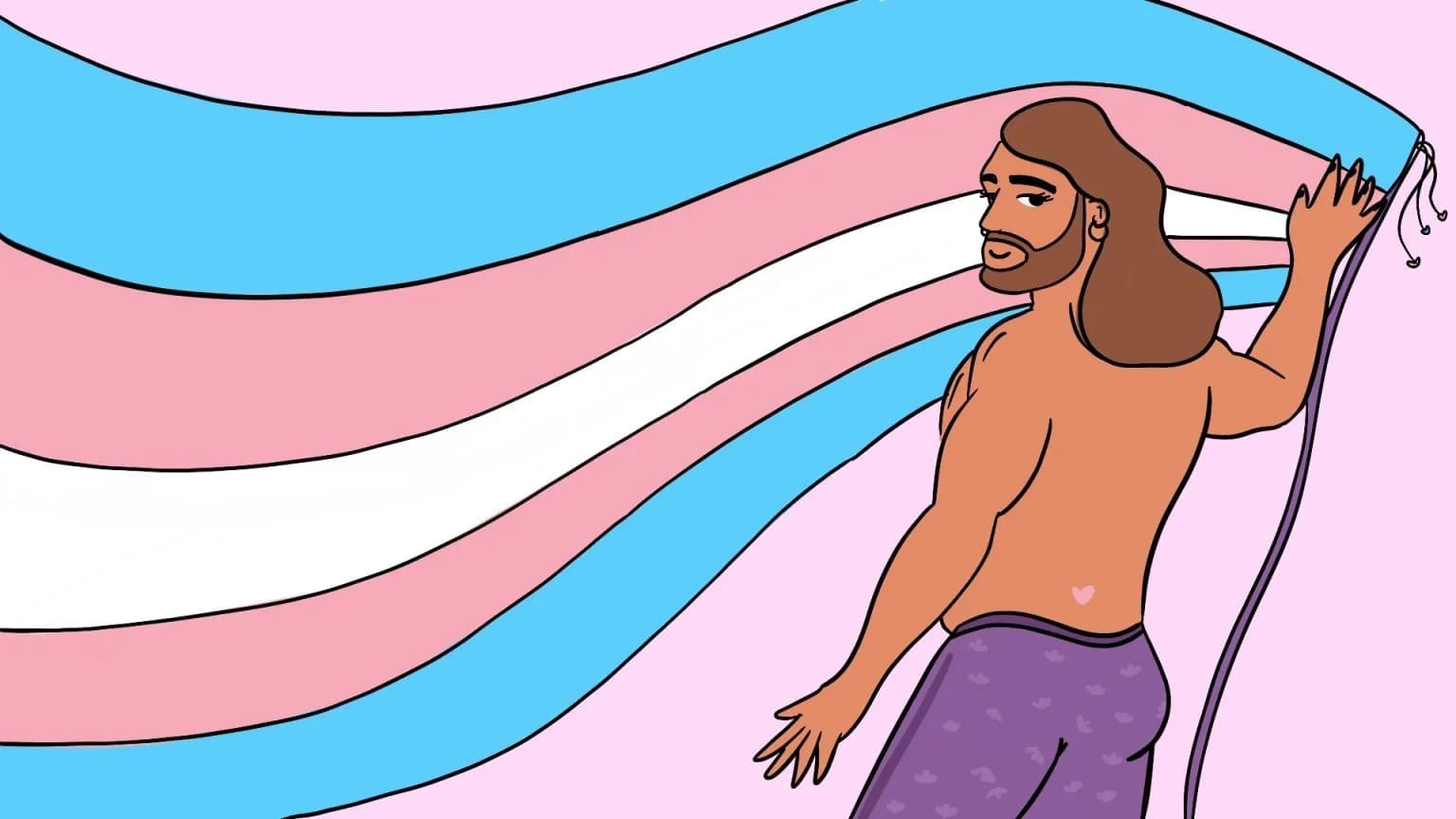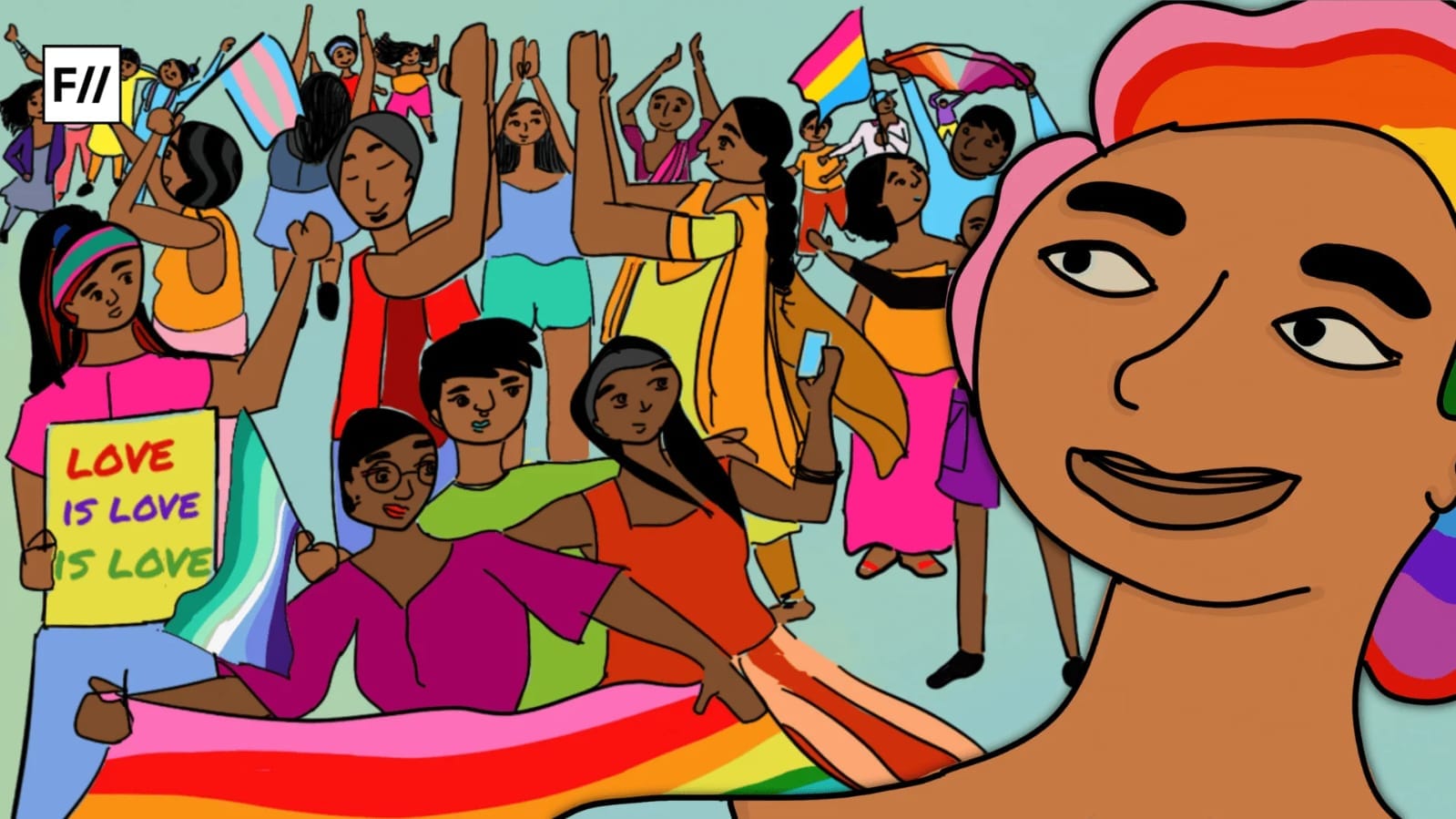The partial striking down of the draconian, insensitive, and downright cruel laws of Section 377 of the IPC by a five-judge bench of the Supreme Court of India on September 6th was welcomed with open arms, not just by the LGBTQIA+ community in India but also the allies and supporters of the cause. Years of oppression and struggle finally came to an end, at least partially. No longer will members of the community be branded as deviants and criminals by the law.
The LGBTQIA+ community in India finally has equal rights and protection under the law like any other citizen of the country. While this may not magically end all forms of discrimination faced by the community, it is definitely a good place to start. Legal protection is the first step towards ensuring that a minority community has equal opportunities, rights and protections as the majority. “Societal morality cannot trump constitutional morality. Societal morality cannot overturn the fundamental rights of even a single person,” the Chief Justice of India, Dipak Misra, stated in his verdict.
Celebrations for this historic ruling broke out instantly across every corner of the country; India finally had created the space to accommodate every single colour of the rainbow. Since the government and the ruling party remained silent on the matter, it was heartening to see several top brands and companies coming out in support of the cause. Major brands like Uber, Swiggy, Indigo Airlines, Airbnb India, Zomato, India Bulls, Bira, Durex India and others were quick to change their display and cover photos online, and posted quirky messages on social media platforms pledging their support to the cause of LGBTQIA+ activism in India.
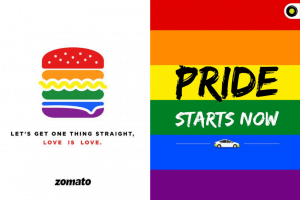
However, is changing display pictures to the colours of the pride flag really all it takes to prove one’s allegiance to the cause? Will a rainbow tinted brand logo be enough to create awareness among the masses and end discrimination against the LGBTQIA+ community in India? Is a picture of a rainbow cake with a one-liner about love enough to end years of intersecting oppression of an entire community that until a few days ago was labelled as criminals? Probably not. But it sure is a good PR move.
‘Pinkwashing’ is a concept that has come to describe a process by which conservative capitalist enterprises and institutions profess their support for LGBTQIA+ rights, co-opting the movement for the fulfilment of their own capitalist interests. The practice of presenting themselves as queer friendly often helps these capitalist organisations to get away with negative behaviour and polices that go unnoticed as they obnoxiously wave pride flags with their superimposed brand logos at pride parades and rallies. Unsurprisingly, such organisations almost never take concrete steps to actually help queer communities in terms of employment, prevention of workplace sexual harassment and other aspects; and are only concerned with keeping up their façade of progressiveness, tolerance and liberal values.
Will a rainbow tinted brand logo be enough to create awareness among the masses and end discrimination against the LGBTQIA+ community in India?
“Adding a rainbow to their logo is only beneficial to companies. Companies only show support to the LGBTQIA+ community only when it is easy to do so and helps in their marketing. The moment 377 got scraped down, companies pretended to be queer friendly only to help their sales, if they did care about the otherwise marginalised community they’d make the company environment and policies more queer friendly and inclusive like hiring trans men and women who face problems with getting jobs. Pinkwashing is the same as tokenism in films, pretending to bring about a change but really taking the advantage of the market that they were previously losing out on,” says Aqib Khan, a second year student of English literature at Jadavpur University, Kolkata.
Essentially, none of these big brands are ‘taking a stand’ for the LGBTQIA+ community, so to speak. They’re not rebels who want to see the systems change and who dream of a better, more inclusive and compassionate society. With the partial scraping of section 377, there has been a massive outpouring of support from the socially conscious youth of the country and these brands are simply jumping the rainbow hued bandwagon with the hopes of reaping in greater profits.
Also read: Un-Fair And Not So Lovely: Capitalism And Colourism In India
The striking down of the act also holds the promise of greater visibility of the LGBTQIA+ community within the mainstream, meaning that this is a new demographic that is now available for exploitation by these institutions of capitalism. When Uber changed its route directions to the colours of the rainbow, it wasn’t a sentimental symbol of their allegiance and dedication to the cause – it was a calculated marketing strategy where the benefits outweighed the risks in light of the current situation.
In 2013, when Fastrack launched its Come Out Of The Closet TVC, it was doing something similar. The brand is known to cater to a demographic of urban youth. Its commercials have been known for having ‘radical’ concepts. With this TVC that was suggestive of LGBTQIA+ relationships, the brand was simply keeping up that image of tokenistic radicalism and alternative youth culture; giving their demographic exactly what they wanted – a sense of belonging and acceptance in a counterculture of sorts that the real world tends to ignore.
Many will argue that the fact that brands are voicing their support for LGBTQIA+ rights is a good thing and it positively impacts the movement, that the gay rights movement needs to be backed up by powerful organisations that can lend their voices to influence several sections of the society and possibly curb homophobia with campaigns that spread strong messages. But the message that is being spread here is a false one that is deeply rooted in consumer politics.
These organisations almost never take concrete steps to actually help queer communities in terms of employment, prevention of workplace sexual harassment.
Brands like Uber and Zomato spend big bucks to market themselves as socially relevant to their consumer base that is largely made up of digitally connected urban youth who are likely to reward a brand that appears more progressive and socially aware than others. They know exactly what we want – to feel like we’re important and a part of a radical movement while sipping on expensive coffee from plastic cups.
They may be raising their voice against grave injustices in society, but let us not forget that it is in their economic interest to do so. This sort of hijacking of the community’s struggles completely erases the problems of caste, gender, race, religion and economic class that also intersect with those relating to their sexual orientation. It paints a false picture of branded inclusivity that seems to be within everyone’s grasp, but is far from it in reality.
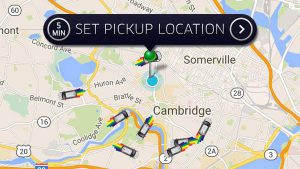
Pinkwashing is already recognised as a major problem by LGBTQIA+ activists in the west. Brands flock to display their support, especially during pride season, to cash in on the growing purchasing power of the LGBTQIA+ community and increase their sales under the guise of supporting pride. Clothing brands like H&M, Urban Outfitters, Nike, and many more have been releasing capsule collections during Pride season for several years now, attracting consumers who are from the community or its allies with their display of pseudo- activism. With the scraping of the inhuman laws of section 377 and the gay rights movement in India gaining greater momentum with every passing day, there is a huge possibility that this will be soon a problem that Indian activists will also have to acknowledge.
What can we possibly do to remedy this situation? As individuals, we must remember not to allow ourselves to be carried away by such tokenistic activism – sure, a rainbow hued brand logo may be a great way of expressing solidarity, but how effective is it in bringing about tangible improvement and change? Corporate organisations also have a duty towards ensuring a safe and inclusive working environment for the LGBTQIA+ community. During one’s working life period, an individual spends about 35% of their waking hour at the workplace.
Hence, creating a work culture that is respectful of one’s identity and dignity is a responsibility which, if ignored, could lead to severely traumatic experiences for many in the LGBTQIA+ community. Thus, how LGBTQIA+ friendly a corporate is, should not be judged by their social media marketing skills, but by how they treat their own employees, their policies and their level of dedication towards actually fostering a more inclusive society. Let’s not be blinded by colours and forget to dispel the darkness that lies beneath.
Also read: Why The PadMan Challenge Does Not Really Combat Menstruation Stigma
“Instead of treating LGBTQIA+ people as special or even introducing them as our ‘this is my gay best friend’, we can let that part slide. And maybe create an atmosphere so that they would not feel the necessity to separately ‘come out’”, suggested Mehnaz Zareen, as a way of making our workplace more inclusive.
Sanjukta Bose is a student of Jadavpur University, Kolkata. She is currently in her final year of BA Honors degree in English Literature and is also working as a freelance content writer. You can follow her on Instagram.
Featured Image Source: Arun Chandra
